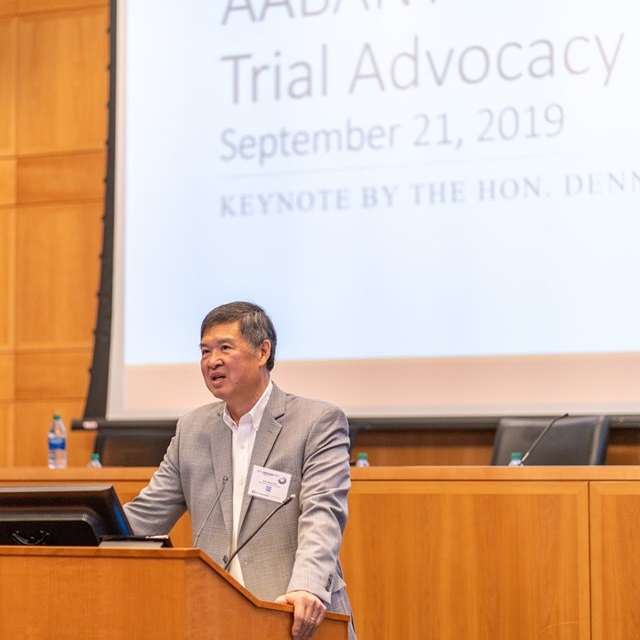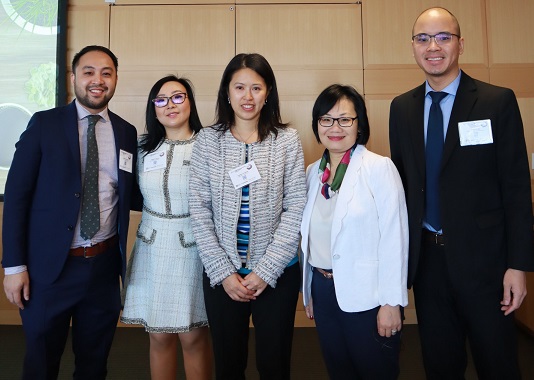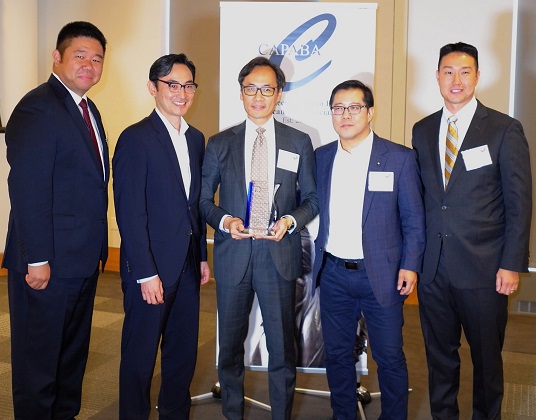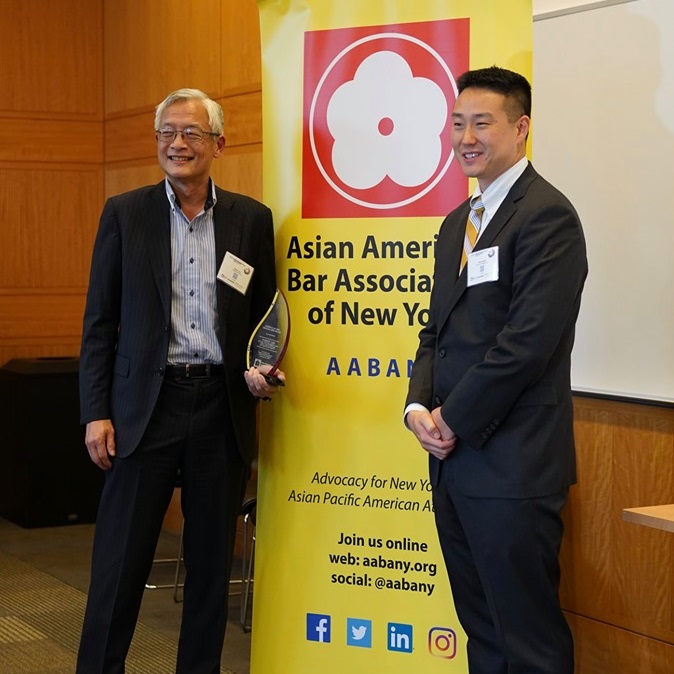On Saturday, September 21, 2019, AABANY held its 10th annual Fall Conference together with NAPABA for the 2019 NAPABA Northeast Regional/AABANY Fall Conference, “United in Action and Vision: Towards 2020 Together.” For the third year in a row, the conference took place in Fordham University School of Law. This year marked our biggest yet, with about 450 attendees throughout the day. On Friday evening, September 20, we held a Welcome Reception at Supernova, a rooftop bar in the Novotel Hotel on West 52nd Street, to kick off the Conference, open to all attendees from New York and the Northeast region.

This year, many programs throughout the morning and afternoon offered CLE credits to attending attorneys. Twenty CLE programs were available, covering many different topics ranging from Asian American Voter Protection to Pro Bono Clinics. Also available were non-CLE programs such as the In-House Counsel Forum and “Asian American Women Corporate Counsel in Television.” In addition to all the programs offered at the Fall Conference, we had Pitch Sessions, Trial Advocacy Program (TAP), Professional Development Coaching sessions, and a Diversity Career Fair and Expo. Numerous employers from all over New York City and State set up informational tables at the Diversity Career Fair to speak with prospective candidates. This was a great way for law students, recent graduates, and practicing attorneys to learn more about the employers and their different areas of practice. Some of the employers set up onsite interviews to speak with Fall Conference attendees who submitted resumes in advance.

In one of our morning programs, the Pro Bono Committee hosted “The Art and Science of Interviewing Pro Bono Clients.” The program addressed how to communicate with and educate the clients, collect information, and manage clients’ frustrations. This included a necessary discussion regarding proper translation issues that would arise as well as establishing a reliable relationship with an interpreter. Beatrice Leong and Jonathan D. Hernandez simulated an effective and ineffective client intake meeting to demonstrate the important takeaways of this program.
Another program that took place was “State and Federal Clerkships: A Primer on Seeking, Landing, and Succeeding in the Right Clerkship for You,” organized by AABANY’s Judiciary Committee, which discussed the benefits of a clerkship, steps to landing a clerkship, and some tips on how to be successful at a clerkship. The panelists highlighted how a clerkship can help with professional development, legal writing and research skills, and building a network. The panelists were also able to give some insight into the differences between state and federal court clerkships, the application process, and how to approach interviews.
The Plenary Lunch Session featured a Special Screening of the award-winning documentary “And Then They Came for Us.” This documentary reflects on the story of Executive Order 9066 and the internment of 120,000 Japanese-Americans during World War II. It also highlighted the landmark Korematsu v. United States case and its relation to the civil rights issues people of color and under-represented communities face today. The screening was followed by a discussion with NAPABA Trailblazer Dale Minami, who was Fred Korematsu’s lawyer, and the filmmaker, Abby Ginzberg.

More programs continued in the afternoon including the Connecticut Asian Pacific Bar Association’s “Opioids and the Courts” program. This program discussed the national opioid epidemic created by certain pharmaceutical companies and how states and individuals are bringing lawsuits against those companies. We heard directly from William Tong, Attorney General of the State of Connecticut, and his approach to the multi-district litigation in Ohio that is scheduled for trial in October 2019.
Our afternoon included additional insightful programs such as “Cybersecurity: 20/20 Hindsight Not Good Enough in 2020,” organized by AABANY’s Commercial Restructuring and Bankruptcy Committee, which discussed the cybersecurity industry today, and how lawyers can help prevent data breaches and safeguard against bad actors. The panelists gave advice on how attorneys can stay ahead of data breaches and protect their clients – mainly through diligent pre-breach planning, training staff on signs of a breach, and preparing a response plan in case of a breach. The panelists also offered some advice on the ethical concerns that arise when a breach occurs, and how to best handle them.

After the programs concluded, a Cocktail Reception was held in the Bateman Room and the terrace outside the Soden Lounge. Attorneys and participants connected and reconnected with peers, friends and colleagues from AABANY and NAPABA. Connecticut Attorney General William Tong offered opening remarks to all in attendance, followed by President Brian Song presenting AABANY’s Norman Lau Kee Trailblazer Award to Parkin Lee, Chief Legal Officer of the Rockefeller Group. Parkin Lee is a pillar of the Asian American legal community who has paved the way for generations of Asian American attorneys in New York and across the country.
The night didn’t stop there as we continued the festivities in the heart of New York City at the Ascent Lounge to enjoy a Post-Conference Dinner. Located in Time Warner Center in Columbus Circle, the lounge was the celebratory finale to the Conference, and participants got to mix and mingle over a dinner buffet, drinks and dessert, with views of Central Park at night.
Many thanks to all the participants including the speakers, moderators, program coordinators, and volunteers. Thanks to our sponsors for their support which made this successful Conference possible. We also thank Fordham Law School for hosting us at their exquisite facility.
For some photos from the Conference visit AABANY’s Facebook page. The albums are organized according to the volunteers who took them: Laura Tsang, Guanlan Shen, Katherine Shen and Ziqi Guan.
Thanks to Justin Chan, Tiffany Cheung, Dasheng Lin, Wai Wong, and Lia Kim, our law student volunteers from Cardozo Law School, for their help in drafting this blog post.


